Critics Weigh In: Is AI the Hero or Villain of Our Stories?
In the rapidly evolving landscape of artificial intelligence (AI), discussions surrounding its potential impact on society have intensified. As AI systems become increasingly integrated into our daily lives, voices within literature, ethics, and technology critically assess whether AI should be viewed as a hero or a villain. This article explores various perspectives on the dual nature of AI, drawing on modern theories, critiques, and analyses from noted critics and scholars.
The Hero Archetype: AI as a Force for Good
Many proponents of AI frame it as a hero in the modern narrative. Advocates highlight its potential to solve complex problems, enhance human capabilities, and improve quality of life.
Advancements in Healthcare
One leading champion of AI’s positive narrative is its application in healthcare. AI systems like IBM’s Watson and Google’s DeepMind are revolutionizing diagnostics, enabling earlier detection of diseases such as cancer. According to a study published in the Journal of Medical Internet Research, AI-assisted algorithms can analyze medical data at a speed and accuracy that surpasses human capabilities[1]. Furthermore, AI-driven robotic surgeries have shown higher precision, resulting in shorter recovery times for patients[2].
Environmental Sustainability
Tech enthusiasts also emphasize AI’s potential in addressing climate change. AI can optimize energy consumption, predict environmental shifts, and promote sustainable practices. According to a report by the World Economic Forum, AI technologies are expected to contribute significantly to limiting global warming by enhancing energy efficiency and streamlining supply chains[3].
Enhanced Accessibility
AI’s role in increasing accessibility also offers a beacon of hope. From voice recognition technologies that support those with disabilities to translation algorithms that break linguistic barriers, AI has the potential to foster inclusivity. Researchers at Stanford University discovered that AI can provide tailored educational resources for students with learning disabilities, thus leveling the educational playing field[4].
Critics of the Hero Narrative: Warnings of a Dystopian Future
Despite its advantages, critics argue that framing AI solely as a hero can lead to complacency. Writers and analysts such as Sherry Turkle, a sociologist at MIT, caution against over-reliance on technology. In her book, Alone Together, Turkle posits that while AI can facilitate connectivity, it can also foster isolation among individuals. The concern is about the sociocultural implications of substituting human relationships with digital interactions[5].
Job Displacement and Economic Inequality
A significant argument against the hero narrative is the potential for increased job displacement. As AI technologies automate tasks traditionally performed by humans, critics like Andrew Yang, former U.S. presidential candidate, warn that millions of jobs may be lost, exacerbating economic inequality. Yang’s proposal of a Universal Basic Income (UBI) aims to address these challenges, highlighting the fear that AI may, in fact, contribute to a widening wealth gap[6].
Ethics and Accountability
Ethical considerations also complicate the hero narrative. Critics point out that AI systems often reflect the biases of their creators. For instance, an investigation by ProPublica revealed that certain machine learning algorithms used in criminal justice disproportionately targeted minority populations[7]. Such biases not only undermine the integrity of justice systems but also raise critical questions about accountability and transparency in AI decision-making.
AI as a Villain: The Dystopian Narrative
The portrayal of AI as a villain follows a rich tradition in literature and film, often reflecting societal anxieties about technology. Works such as George Orwell’s 1984 and Isaac Asimov’s stories on robotics depict futuristic landscapes where AI systems manipulate or control human lives.
Surveillance and Privacy Dilemmas
One of the most unsettling aspects of AI’s integration into society is its use in surveillance. Governments and corporations collect vast amounts of personal data, often without explicit consent, to train AI systems. Critics have highlighted the risk of an Orwellian future where privacy is eroded, and individual freedoms are stifled. In an article by Zuboff in The Guardian, this phenomenon is termed "surveillance capitalism," where personal data becomes a commodity, raising ethical concerns over autonomy and agency[8].
Autonomous Weapons and Warfare
AI’s application in military technologies further complicates its hero-villain dichotomy. Autonomous weapons capable of making life-and-death decisions without human intervention invoke fears of a future where machines can wage war independently of moral considerations. Scholars like Paul Scharre advocate for robust regulations to govern the use of AI in military applications, asserting that unchecked development could lead humanity into perilous conflicts[9].
Bridging the Divide: Towards a Balanced Perspective
As discussions continue, some critics and thought leaders advocate for a more nuanced view of AI, acknowledging that it is neither a hero nor a villain but a tool shaped by human intentions and decisions.
The Role of Governance
A key argument for this perspective is the importance of governance. As AI technologies advance, robust legal frameworks and ethical guidelines must evolve in tandem to mitigate risks. Experts like Ryan Calo, a law professor at the University of Washington, emphasize the need for interdisciplinary collaboration among engineers, ethicists, and policymakers to address the multifaceted challenges posed by AI[10].
Human-Centric AI Development
The idea of human-centric AI seeks to align technological advancements with human values. Initiatives like the Partnership on AI, founded by tech giants including Amazon, Google, and IBM, aim to promote ethical AI practices that prioritize social good[11]. Engaging diverse stakeholders—ranging from technologists to sociologists—creates a holistic approach to designing AI systems that consider ethical implications and societal impact.
Looking Ahead: The Future of AI in Narratives
As the world stands on the precipice of unprecedented AI advancements, literature and cultural narratives will undoubtedly reflect society’s evolving perceptions and concerns. Understanding AI through the lens of both hero and villain archetypes allows for deeper explorations of its complexities.
Cultural Narratives in Film and Literature
The portrayal of AI in media will play a pivotal role in shaping public perceptions. Films like Ex Machina and TV shows like Black Mirror leverage dystopian themes to question the ethical boundaries of AI, prompting viewers to grapple with the implications of these technologies. Conversely, works like Big Hero 6 present a more optimistic view, highlighting collaboration between humans and AI for positive societal impact.
Educational Initiatives
To prepare future generations for a landscape intertwined with AI, educational initiatives must evolve. Integrating ethics, critical thinking, and technological literacy into curricula will empower individuals to navigate the challenges and opportunities of AI. By fostering an understanding of both the advantages and pitfalls of AI, society can cultivate informed citizens who engage with technology responsibly.
Conclusion: The Duality of AI
The discourse surrounding AI as either a hero or villain serves as a reflective mirror of our hopes, fears, and aspirations. Critics and advocates alike emphasize the importance of vigilance and ethical governance. As AI technologies develop, our cultural narratives must evolve, shaping a future where technology serves humanity rather than dominating it. Ultimately, the question may not be whether AI is a hero or a villain but how we, as a society, choose to harness its potential for the greater good.
References
- "AI and the Future of Medicine." Journal of Medical Internet Research.
- "Robotic Surgery: The Future of Medicine." HealthTech Magazine.
- "Artificial Intelligence for Sustainable Development." World Economic Forum.
- "How AI Can Help Students with Learning Disabilities." Stanford University.
- Turkle, Sherry. Alone Together. Basic Books, 2011.
- Yang, Andrew. The War on Normal People. Hachette, 2018.
- "Machine Bias." ProPublica.
- Zuboff, Shoshana. "Surveillance Capitalism." The Guardian.
- Scharre, Paul. Army of None: Autonomous Weapons and the Future of War. W.W. Norton, 2018.
- Calo, Ryan. "Artificial Intelligence Policy: A Primer and Roadmap." Stanford University.
- "Partnership on AI: A Multi-Stakeholder Organization."
These references and ideas present a comprehensive overview of the ongoing debate about AI’s role in society, encouraging critical engagement with the technologies that increasingly shape our world.















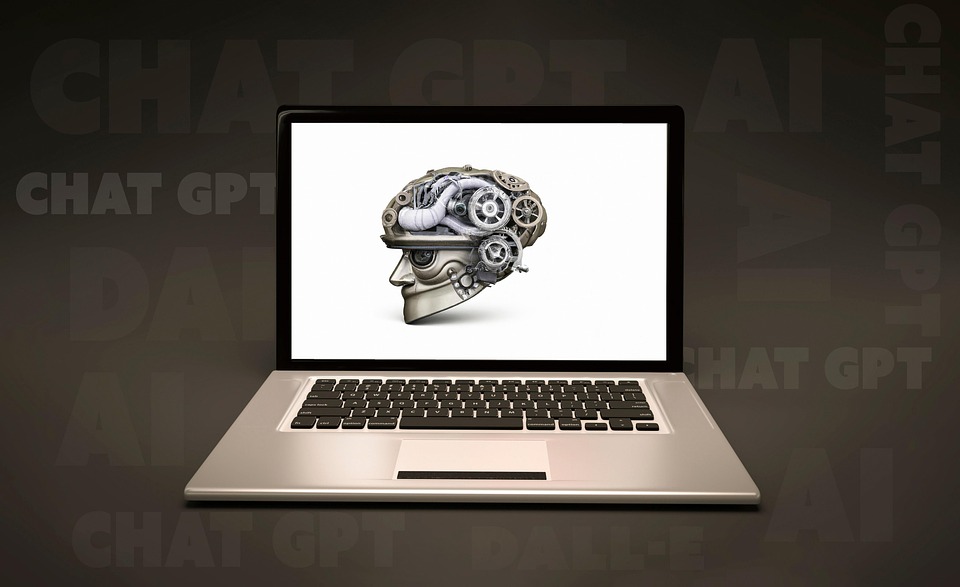
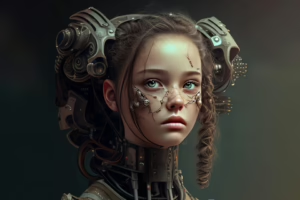
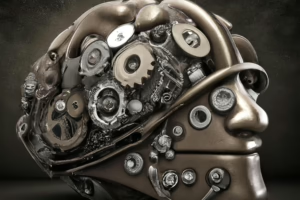
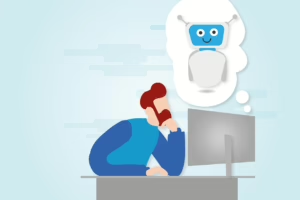
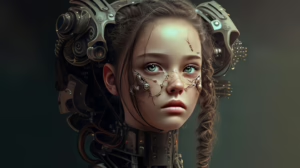
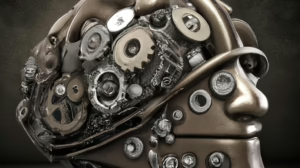
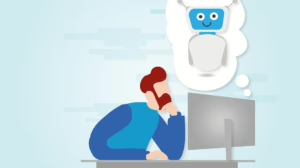




Add Comment